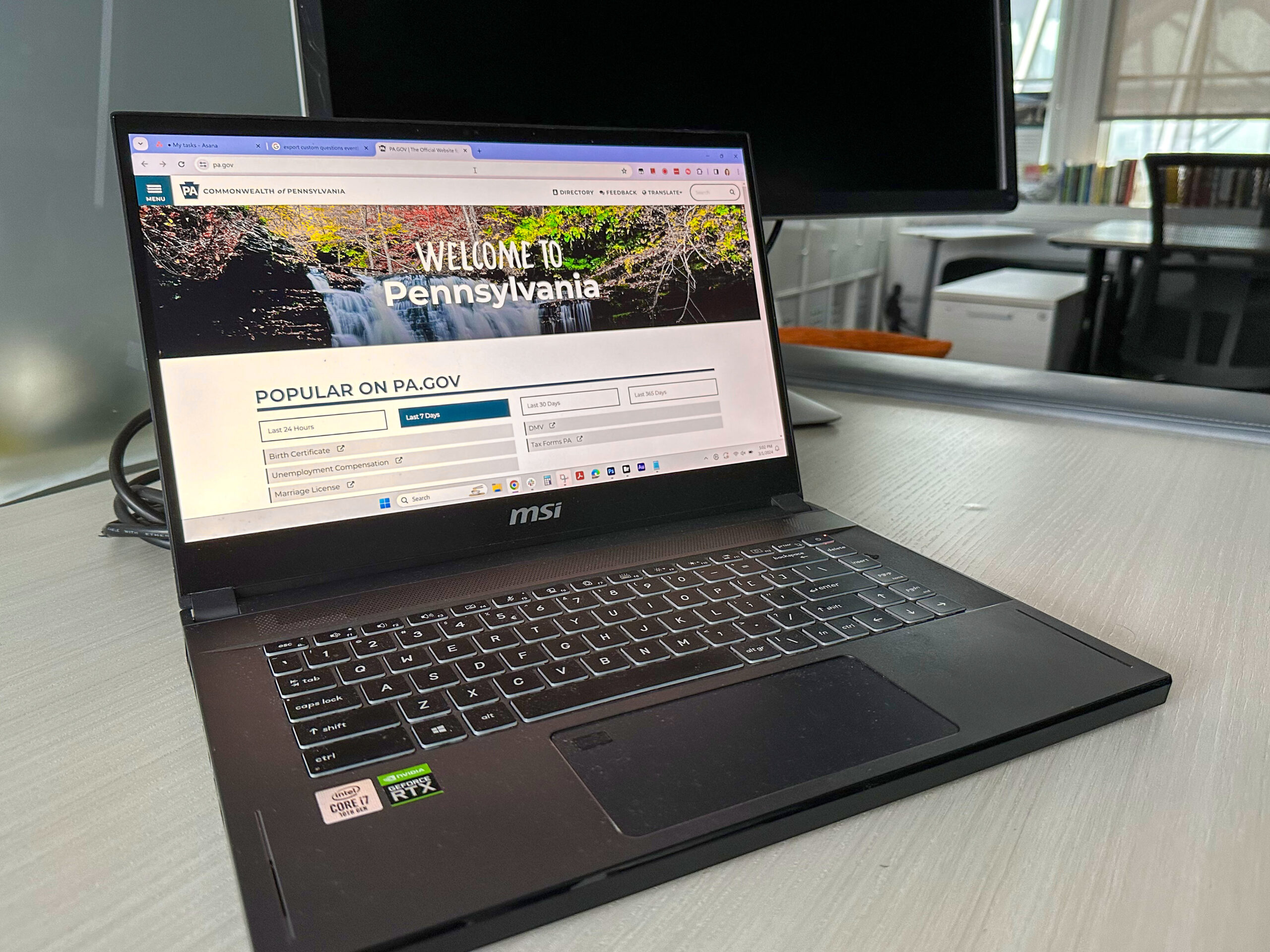Pennsylvania has been awarded $20 million in federal funding to distribute devices that will increase internet access across the commonwealth.
Announced Friday by the Shapiro administration, the money will go toward wi-fi hotspots and what are known as “large-screen” devices — e.g. laptops, tablets and desktop computers — for community organizations like schools, libraries, municipalities and workforce training organizations. Funding will be distributed by the Pennsylvania Broadband Development Authority (PABDA).
“When communities don’t have reliable broadband access, they often rely on anchor institutions like libraries, schools, and community centers to provide it,” said Brandon Carson, PABDA executive director. “With that comes a need for updated resources, including quality devices.”
The funding comes from the American Rescue Plan’s Capital Projects Fund, which supports projects to expand economic opportunity and digital access across the country. PABDA is developing a new program to purchase and distribute the devices, with an anticipated launch date later this year.
Depending on the guidance for the funding, the City of Philadelphia may apply for funding itself and/or share out the opportunity to community organizations, according to Juliet Fink-Yates, broadband infrastructure and digital inclusion manager for the city’s Office of Innovation and Technology (OIT).
Building out broadband infrastructure and making the internet affordable are only pieces of the digital equity pie, she noted.
“There’s such a large need in Philadelphia,” Fink-Yates told Technical.ly, explaining that while many people have smartphones, large-screen devices make using the internet more efficient. Software and tools for content creation often require a large screen device, she added, which often have a high upfront cost.
The city is already investing in low-cost device distribution through a partnership with PCs for People, a national device refurbishment and distribution nonprofit. Philly officials have been thinking about how to create and improve public computing centers at recreation centers and senior centers, and the Office for Children and Families’ adult education team also has a line in its contracts with adult education providers so adult learners can get access to a device if they need it, Fink-Yates said.
Across the state, more than 276,000 households, schools, libraries and businesses are not connected to the internet, according to Pennsylvania’s Department of Community and Economic Development. The new funding is estimated to potentially benefit about 12,000 Pennsylvanians annually.
The state received $200 million in federal money last spring from the Capital Projects Fund Broadband Infrastructure Program for broadband connectivity projects.
Additionally, Pennsylvania will receive $1.16 billion from the Broadband Equity Access and Deployment (BEAD) program to expand broadband in underserved or unserved areas of the state. Last year, PABDA launched a map to show which areas of the state are unserved or underserved. PABDA’s five-year plan for this funding was approved last summer.
Fink-Yates, of Philadelphia OIT, noted that while the $20 million for devices is welcome, it’s not a final solution.
“Even though the funding is a pot, it still remains to be this one time funding,” Fink-Yates said. “The city, the state, the federal government really needs to think about … how do we ensure that we can actually maintain the needs of citizens after this funding ends?”







